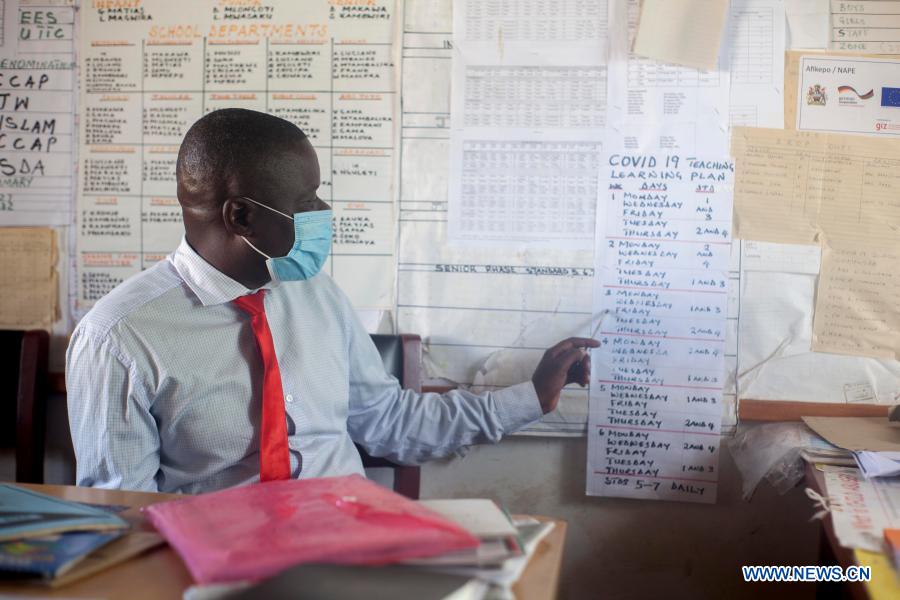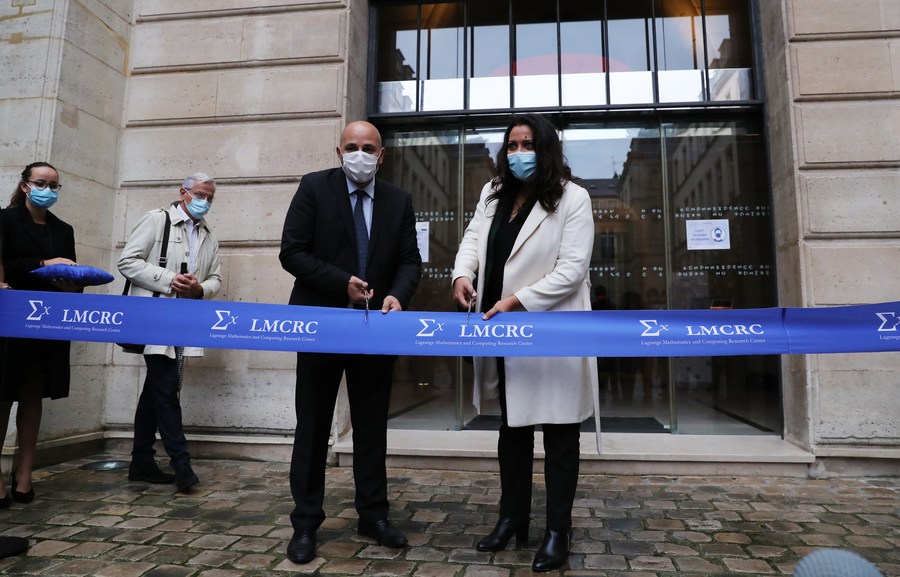
Felix Khonje, a primary school teacher and a COVID-19 survivor, shows a teaching and learning plan in Chiradzulu, Malawi, on Feb. 26, 2021. Malawians who recovered from COVID-19 have embarked on an initiative of sharing their COVID-19 experience into communities. (Photo by Joseph Mizere/Xinhua)
CHIRADZULU, Malawi, Feb. 28 -- Malawians who recovered from COVID-19 have embarked on an initiative of sharing their COVID-19 experience into communities.
Felix Khonje, a primary school teacher, who was once tested positive is empowering people in his community about the effects of stigma on people with COVID-19 prevention and dealing away with myths and misconceptions.
At first, it was very hard for Khonje to share his COVID-19 experience among his fellows because of the beliefs and myths about the pandemic that people had in the area.
According to him, stigma and discrimination have a lot of effects on people who have tested positive, therefore, there is a need to connect the gap between the patients and people in the community to ensure that COVID-19 patients are not stigmatized.
"After my recovery, my life was a bit hard because people could not come near me because in their mind I was unclean. Oftentimes, people that knew my story could run away once they see me in fear that I am going to spread the virus to them, a development that was so stressful," he said.
He then decided to spread the messages of COVID-19 to people in his community to empower them with proper information about the pandemic.
"People should know that discrimination has a lot of effects on the patients and people who have just recovered," he said.
"I thank my family for their continued support during the time of my suffering. People should learn that psychological support is also important in dealing with COVID-19 patients, if it wasn't for my family, the situation could be worse," he said.
A good number of people who were once tested positive are now sharing their experiences with people to ensure that people are getting encouraged in the battle against the pandemic.
Recently published literature is showing that the pandemic has been instrumental in creating a dramatic shift from people's need to live in mutual association toward a desire to stigmatize others.
Meanwhile, one of the renowned psychologists in Malawi Chiwoza Bandawe has said that it is important to look at one's mental health during this time of COVID-19.
"The pandemic's second wave arises from the loss of livelihoods, loved ones, and companionship, that give life meaning and purpose, leaving people bare-left. The need for counseling and care is greater than ever before," he said.













